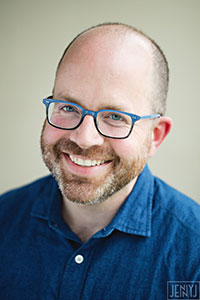
I’ve worked as a trainer for the College for Congregational Development since 2010, and through all of these years I have never worked full-time in the church. I am a non-stipendiary, 1/4-time deacon assigned to St. Paul’s Episcopal Church in Seattle, and I’ve worked for many churches around our diocese as a consultant, but the bulk of my professional work has been for my own private couples therapy practice.
This means I have something in common with most of the lay church leaders who come to the College: I don’t learn these theories, tools, and skills for my day job. And yet, they are useful there, too. I may not tell clients that CCD is on my mind when I’m working with them, but it often is.
For example, we spend a lot of time in Year B of the College on power and politics in human organizations. We learn about how to interact differently with someone when trust in the relationship is low, or when you are in disagreement about something. When trust and agreement are high, you have more room to share information, ideas, and plans with the person. When trust and/or agreement are low, that changes, and it’s smart to be more careful about what you say and don’t say. (We draw on the work of Peter Block for this work.) These concepts are sometimes on my mind when I’m working as a therapist with clients. I’ve even brought it up directly with individual clients, helping them work out a way to intervene better in workplace situations.
I also work as a certified practitioner of the Myers-Briggs Typology Indicator (MBTI), a personality tool we teach and use in Year A of the College. MBTI is widely applicable in many situations, and offers particularly helpful insights for people who are in conflict with someone and want to figure out how to effectively to move through or resolve that conflict.
The College is designed to help church practitioners improve the health, effectiveness, and sustainability of their congregations. But it has implications far beyond that context, and we rely on lay leaders (and bi-vocational clergy like me) to make this learning environment useful for people in many walks of life.
–Stephen Crippen, MA, LMFT